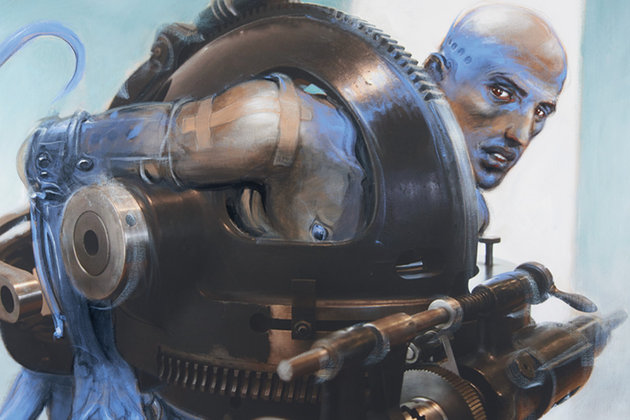My last day in Paris is one I’ll think back on with a
particular fondness. In the morning, as I mentioned in my last blog post, the
whole group went to the Musée des Arts
et Métiers, which was awesome! But with my free afternoon away from the
class, I went to check out Le Pantheon.
 |
| The outside of the Panthéon; clearly, impressive but I've seen lots of impressive things this summer |
The outside of the Panthéon
is impressive, but it’s the kind of impressive I’ve gotten used to going to a
school like Yale and having spent the last few months in Cambridge (which
sounds bad, but it’s a little inevitable). Anyway, while the outside was pretty
cool, I was absolutely gobsmacked (yes, gobsmacked; the only word I can think
of with the appropriate connotation) by the inside.
Before walking inside, all I had known of the Panthéon was that it is meant to be
France’s secular testament to those great minds that contributed to the worlds
of literature and science and statecraft and knowledge in general. And, I had
heard that Voltaire and Rousseau were buried there, but I didn’t give it a
second thought. You have to put dead people somewhere, right?
Anyway, the inside was gobsmackingly incredible. The inside
is laid out in the shape of a Greek cross (which seems like a trend; the Salpêtrière was laid out in the
same way too). At the head of the cross is a statue of Marianne, the traditional
symbol of French liberty and reason, at La Convention Nationale. You can see
that the principles she stands for are being celebrated. In the middle of the
cross, there are four statues dedicated to the French Revolution and its
intellectuals. Of special mention is the statue commemorating Diderot’s
Encyclopedia, and maybe the ancient beginnings of Wikipedia. My favorite is
this one where lots of brilliant men are frozen in mid-boogey—or maybe that’s
just my take on it.
 |
| French Revolutionaries sure do know how to get down |
 |
| A statue to honor Diderot and his Encyclopédie |
 |
| Marianne at the head of the Panthéon |
 |
| Voltaire's final resting place in the Panthéon's Crypt |
To be fair, the Pantheon was originally built as the Abbey
of St. Genevieve, so perhaps the artwork is leftover from the less secular days
of France. But even since its commissioning in 1790 as Le Panthéon proper the building has
reverted twice to a church, yet always to return to a meeting place of great
intellectuals complete with the saintly artwork. Why does secularism seem to
triumph over religious stricture?
 |
| A little bit of The Apotheosis of Saint Genevieve |
But even beyond a history rooted in religious beliefs, there
is something to be said for a world not rooted in the shackling of man’s
intellect. That type of world order doesn’t exactly lend itself to Newtonian
physics, or Hume’s skepticism, or really any new secular knowledge. I really do
believe that religion, inadvertently or otherwise, and despite persecuting its forefathers for their scholarship, laid the foundation for intellectual exploration. When God makes
man the stewards of His creation, there is a certain amount of freedom that
that imbued upon mankind, not the least of which is the freedom to explore the
natural world. Perhaps it's this idea, the superiority of man and his intellect (which isn't necessarily religious, but I'll argue has its roots in Scripture) that gave rise to all the compendia of knowledge.













